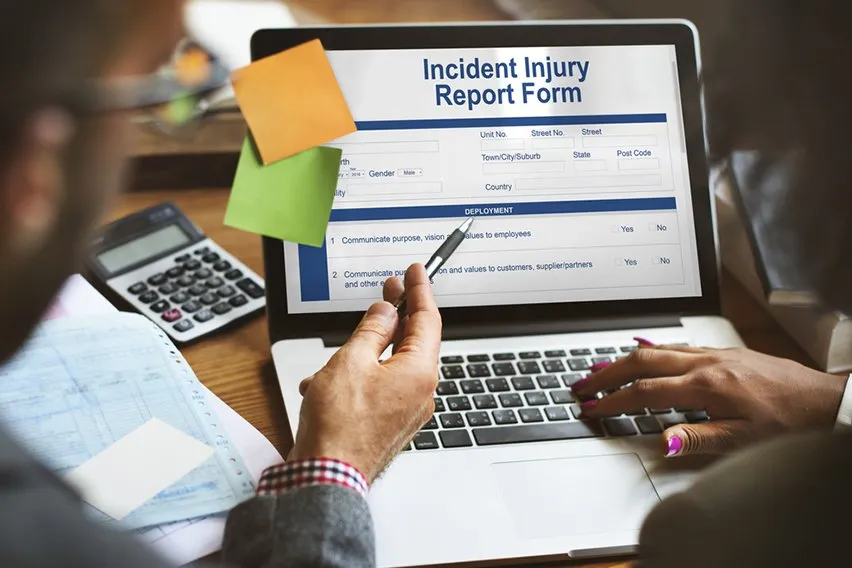What Are Incidental Expenses?

Depending on your line of work, you may receive incidental expenses as part of your job duties. But what are incidental expenses, and how can you tell them apart from other business-related expenses? We explain this, and more so you can better understand how compensation works.
Here’s What We’ll Cover:
What Are Incidental Expenses?
Incidental expenses, or incidentals, refer to tips and other minor expenses incurred. These are in addition to services, projects, or activities paid when conducting business. It’s common for employees to cover the cost of meals and accommodations on business.
Employees who take a taxi to a hotel after leaving an airport, for example, bear the cost of both the taxi and the hotel. If it’s considered a local custom, the employee might pay a tip to the taxi driver and the baggage carriers. This is where incidentals kick in.

The employer would provide incidental expenses to cover the cost of gratuity. In this example, the gratuity is given to the taxi driver and hotel staff.
And depending on the incidentals plan, expenses for laundry, lodging taxes, mailing costs, and others may be included.
But if the employee were to stop for a haircut or a manicure, such would be seen as personal expenses. And thus, they are not covered by incidentals.
Guidelines of Incidental Expenses
The rules and procedures for managing incidental costs are usually found in the employee handbook. There, they identify incidentals and classify them as being either personal or business.
Moreover, it should also set caps in terms of quantity, cost, and quality. In addition, a per diem rate may be set. Anything spent over the established limit then becomes the responsibility of the employee. It’s also worth noting that if meal costs are part of the plan, it excludes alcoholic beverages.
The company’s compensation procedures may require employees to pay for incidentals using either:
- Out of pocket payments
- Company credit cards
- Petty cash
Such procedures should help deal with incidentals for taxation and accounting purposes. As such, employees must keep detailed records of the purchases they make.
Employees should also strive to summarize these records in expense reports. And they should back them up by providing actual payment receipts before submitting them to their company.
Any incidentals paid for by the employee’s personal funds should be returned to them by a separate check. Doing so will serve to show that the payment is a reimbursement and not the employee’s primary income.
Incidentals and Taxation
The taxation of incidental costs paid or reimbursed by the company depends on the type and the taxpayer. For example, if ancillary costs are not related to normal business expenses.
They are necessary for your respective business activities. And under such circumstances, they are usually deductible for tax purposes. But only provided that they are customary in the local area. And if it is expected, and when the quantity is reasonable.
Business-Related Gifts
When a company gifts anything to its clients, expenses related to the cost of the gift are also common. In addition to the cost of simple gifts, they can also incur additional costs. These are typically for things like delivery, ribbons, wrapping paper, and bows.
In terms of deductions, additional expenses that don’t increase the value of the gift are usually not counted. These are things like:
- Transportation
- Gift packaging
- Wrapping
- Engraving
- Insurance
Essentially, anything that does not significantly increase the value of the gift is not included in the deduction limit. The deduction limit for each tax year is $25. Furthermore, gifts given to recipients cannot be deducted more than $25.

Incidental Tax Forms
Employees will need to deduct travel expenses on Form 1040’s Schedule A and enter it as job expenses.
Alternatively, you might instead use Form 1040A or Form 1040EZ for anything equivalent to 2% of the AGI limit.
Reserve and National Guard service members report their 100-mile travel expenses on Form 1040’s Line 24.
They would need to do this as a deduction for the gross income line.
Key Takeaways
As an employee, it is crucial that you understand how incidental costs function in your line of work. Moreover, you need to know how to properly manage your expenses so that you can ensure correct reporting.
In doing so, you can be sure to receive timely compensation for your out-of-pocket expenses. Whether you are an employee or employer, FreshBooks can help you with proper expense tracking. And for even further assistance with business-related subjects, be sure to check out our Resource Hub.
RELATED ARTICLES

 What Is a Travel and Expense Policy? A Comprehensive Guide
What Is a Travel and Expense Policy? A Comprehensive Guide How to Calculate Mileage Reimbursement: Guide to Deductions
How to Calculate Mileage Reimbursement: Guide to Deductions What Is Employee Expense Reimbursement? All You Need to Know
What Is Employee Expense Reimbursement? All You Need to Know 20 Non-Deductible Expenses That Businesses Can’t Write Off
20 Non-Deductible Expenses That Businesses Can’t Write Off Mobile Expense Management: Definition and Tracking Expense
Mobile Expense Management: Definition and Tracking Expense What Is an Expense Check?
What Is an Expense Check?